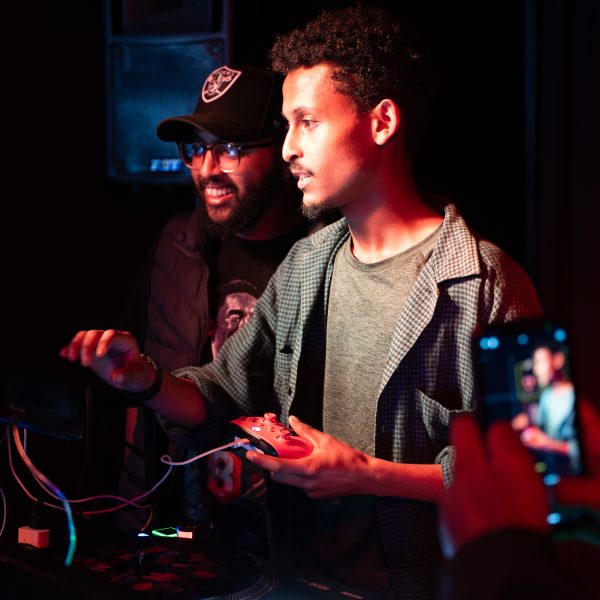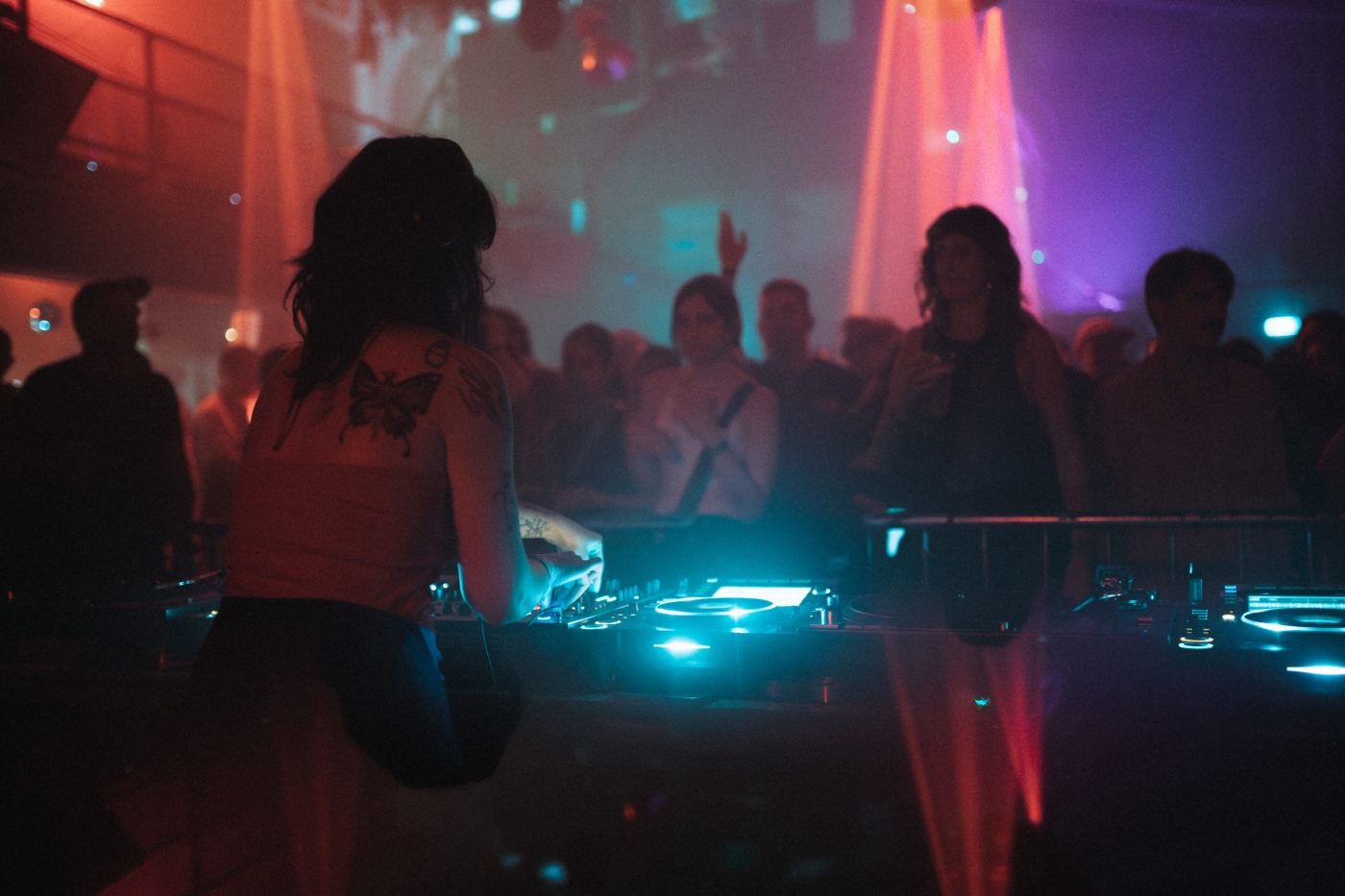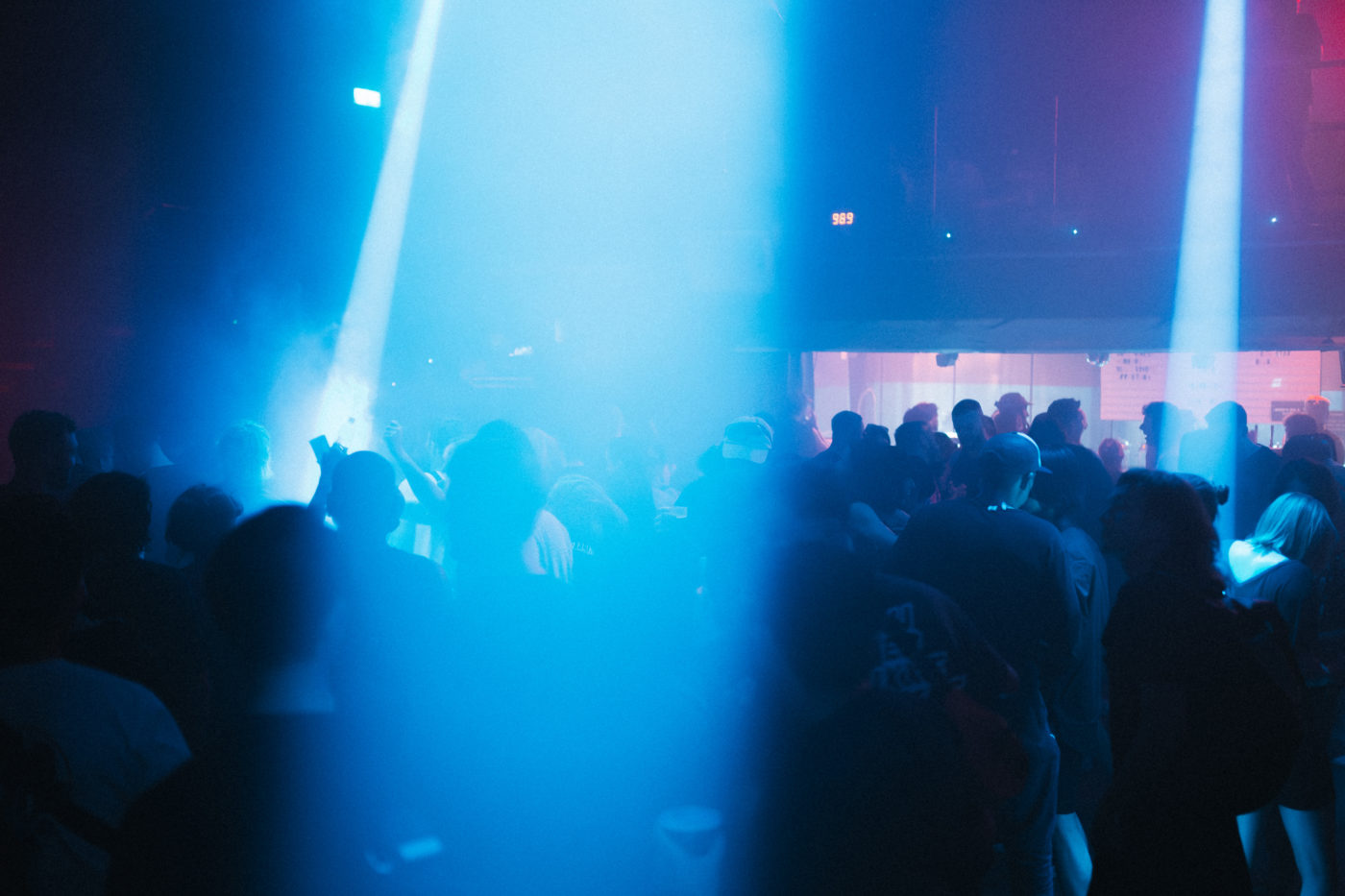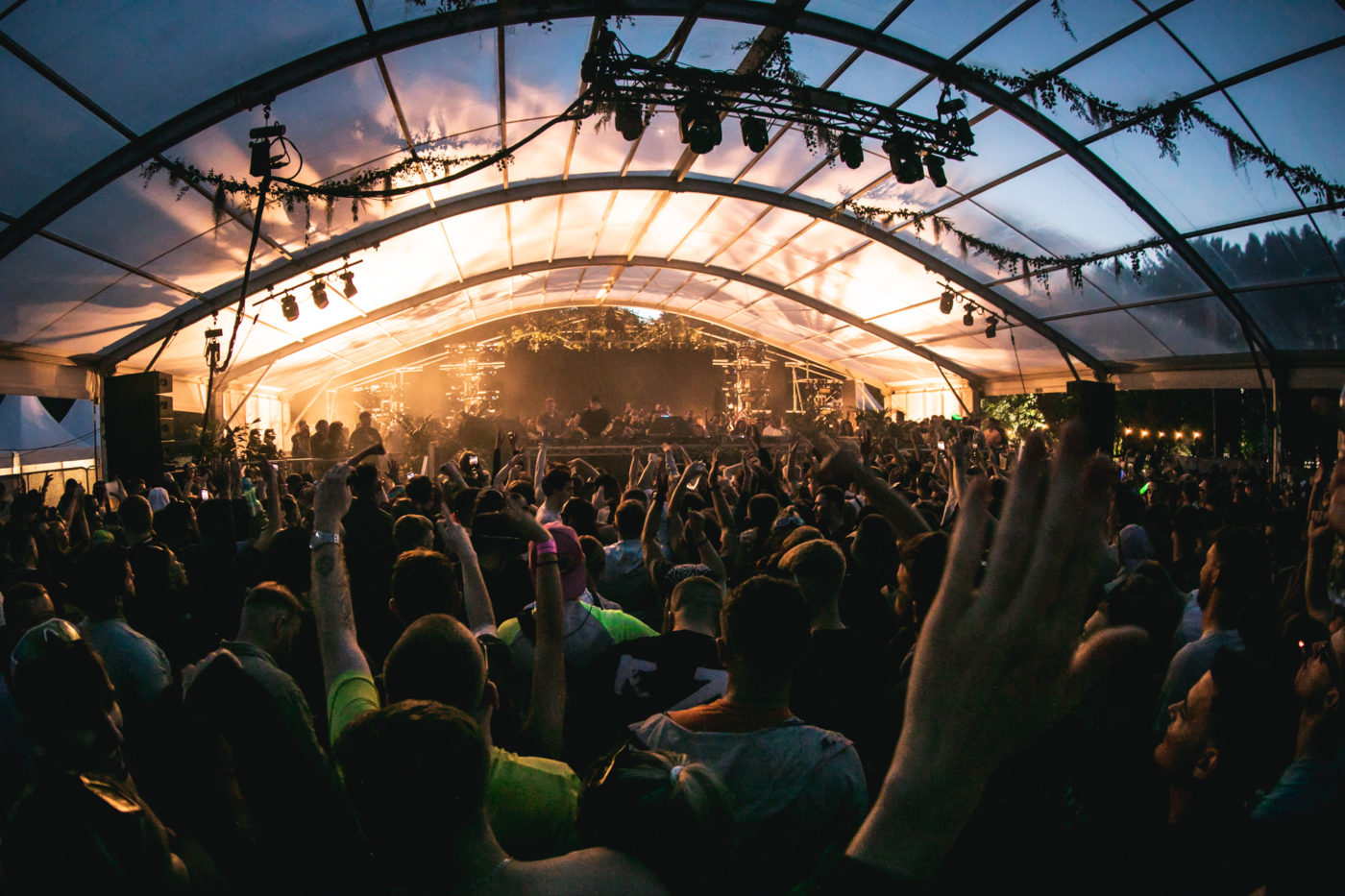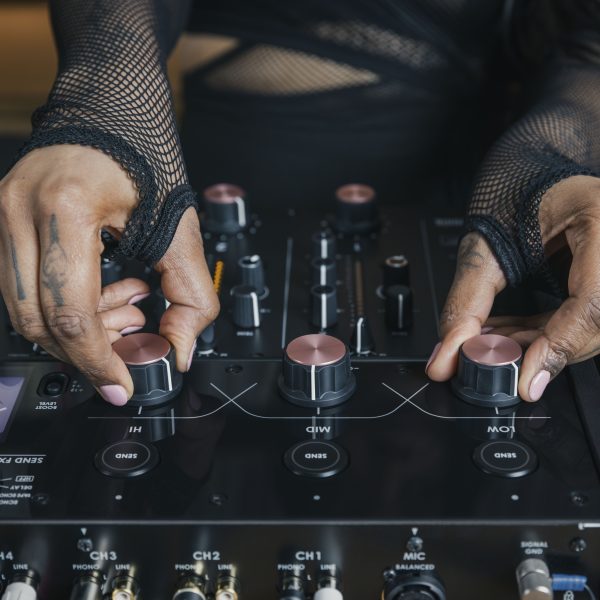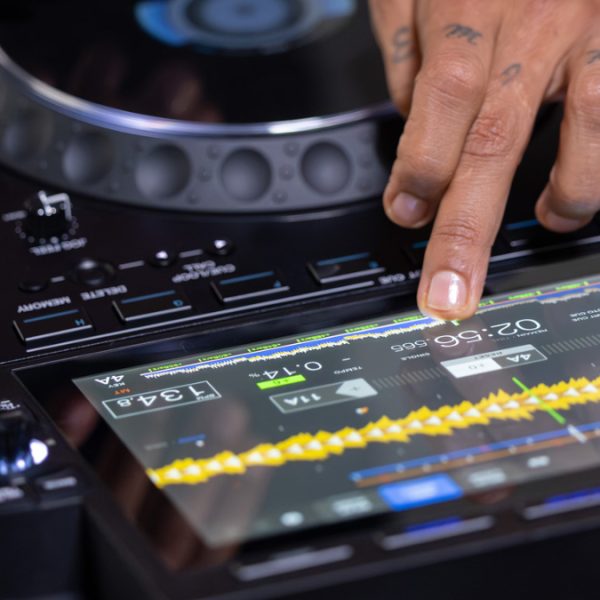HOW DO YOU PRESENT YOURSELF ONLINE? AND DO FOLLOWERS MATTER?
District 8’s Martin said an artist’s follower count means “absolutely nothing” to him. Instead, how an artist presents themselves online and what content they share is something he and the wider team consider. “From my perspective, I might click on a couple of clips online and go ‘that looked interesting’ or ‘that looked good’…the kind of thing that can jump out at you when you’re scrolling through Instagram on a Monday and seeing what went down at the weekend,” he said. “But [the DJ] needs to work musically first.”
Nic also checks the online profile of an artist when he’s considering new names for Transmissions. “I think it’s nice to see people’s styles and how they present themselves,” he said. “We tend not to book people who are flashy behind the decks and ‘arms in the air’ kind of thing, and a bit “big roomy,” trying to whip the crowd up. We like people who are a bit more understated.”
“[With social media] I think you also get an idea of how serious someone is about music and DJing, or whether it’s more of a lifestyle thing,” he continued. “It also gives you a chance to look at what they are involved in in music, like their other projects, and where else they are playing. So, people’s social media profiles are important, but numbers aren’t.”
The Brvtalist said he doesn’t “put that much stock” into how many followers an emerging DJ has, but other promoters might feel differently. “I think in today’s industry you cannot ignore someone’s social media ‘numbers’ and I understand for certain events where selling tickets is one of the primary goals, why promoters do this,” he said. “However, that’s why I really enjoy curating for New Faces. The focus is supposed to be on emerging artists, and people come to Tresor to hear new DJs, so I also don’t have that pressure when booking for these nights.”
In New York, Téa Abashidze is the cofounder and co-booker of the club BASEMENT, and she doesn’t consider how many followers an artist has before booking them. “Among a sea of trendy, TikTok type of influencer DJs who have thousands of followers, it’s clear that follower count and views do not mean that they’re good at what they do,” she said. “I do check artist social media profiles to see how they present themselves, what they’re posting; you can see clearly if they take their job seriously or if this is just a side, temporary fun moment for them. Having a social media presence nowadays is essential for an artist, it’s one of the easiest ways to spread the word about yourself. What is very essential though, is to have a Soundcloud profile to upload your sets.”
This is because not all promoters and bookers can check out a set IRL by an emerging artist, as many of them work at their own club or party during the weekend. “And that’s why, for us, it’s essential to listen to artists online,” said Téa. “Sometimes, they only upload the tracks they produce, which is not sufficient to understand what and how they actually play in their sets.”
BUILD YOUR MIX ARCHIVE
Soundcloud and Mixcloud are where DJs showcase what they’re about. It’s also where bookers and promoters browse when they’re discovering new talent.
“Finding and supporting emerging DJs is crucial for the scene,” said Téa. “I browse Soundcloud a lot, also check RA listings, listen to recent radio plays from local and international radio stations, and in many cases, other artists and friends send suggestions. I try to go to as many other clubs and parties as I can, but as I spend my whole weekends at BASEMENT, it’s hard for me to find time to do that very often. And that’s why the internet is very handy for me, I get to listen to most of these emerging artists online first.”
Nic loves attending other parties and festivals to see who’s playing the early slots, as these artists tend to be lesser known. But listening to radio shows allows him to discover new DJs too. “You can climb the online mix ladder in the same way as you do clubs and festivals,” he suggested. “[Mixes for] Patterns of Perception, Animalia, Crack, Resident Advisor, Boiler Room etc.—these mix series are like a stamp of approval. I follow certain mix series based on the vibe and the sound, and then I’ll discover people that way and start following that person.”
WHERE ELSE DO BOOKERS AND PROMOTERS FIND EMERGING DJS?
Similar to Nic, Samatha Togni enjoys going to other parties to discover new talents, however, it’s not always possible due to her own stacked DJ schedule. But she enjoys the process of researching potential artists for Boudica, so she regularly browses Soundcloud and Instagram, as well as her “favourite music magazines” every week.
Location is also something that influences where promoters and bookers find their DJs. “It’s a rather small scene here in Taipei, especially for the music we are trying to push,” said Hsu. “If there are DJs that would fit our club’s vision, most of the time I would have heard of them already through other promoters and friends in the industry. Unless it’s someone just starting out, and might have never played out before, in this case sometimes we would eventually get to know them just through the network and the community around FINAL. I would say, in general, just go hang out and support the club you want to play at, be part of the community, and you will meet the right people at one point if you’ve got what it takes.”
DOES BEING A PRODUCER, PROMOTER, LABEL BOSS OR PART OF COLLECTIVE HELP?
This one depends on the booker or party in question. Samantha is more inclined to book DJs who are also producers. “It brings an additional layer and creativity to their story. It’s something we encourage in our residents and emerging DJs. Make sure to download your DAW (the majority of them come with a free trial!) and start experimenting with your own sound.”
Hsu felt that when a DJ makes music, it shows that the artist is dedicated to the scene and culture. But “some of the best DJs don’t produce nor throw events, they just DJ, and serious digging takes up a lot of time,” he said. “If DJing is the only thing you are interested in, just focus on that. Promoting or making music etc., are a completely different game.”
Téa noted that music production is a “major addition” to DJing. “I truly love when people dedicate their time and energy to producing,” she said. “Though I never prioritise a producer over someone who is solely a DJ. Being a good producer does not mean they can always be a good DJ and vice versa. While booking a DJ, the most important two things I’m looking for are their mixing skills and track selection.”
As well as Transmissions, Nic runs the night and label space•lab. He explained how a DJ who has a label or produces their own music can go beyond the “personal” and “story-telling” aspects of solely DJing. “I like it when DJs do parties as well because it shows that they’re still connected to the other side of it and understand the struggle of doing it, and put effort into keeping the scene going,” he said. “But whether someone produces or has a label is not a deciding factor at all.”
Joining a collective with similar music tastes to you or launching your own collective can be another way to obtain bookings. Martin regularly books collectives to host rooms in the different clubs where District 8 operates and invites them to curate festival stages too (Martin is the founder of Irish festivals Life and Boxed Off). “If you’re part of a collective and we have a show that suits your collective, that’s certainly another way to get booked,” he said.
